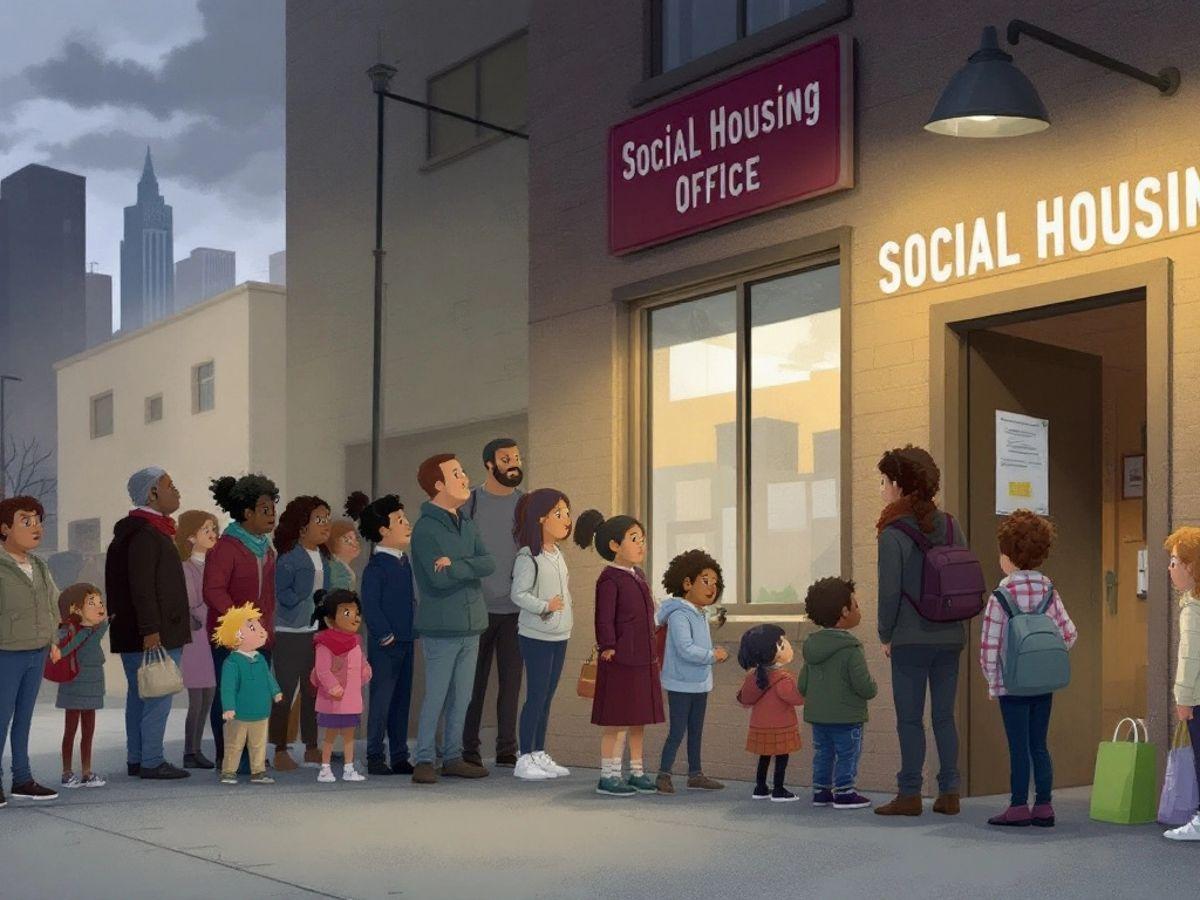Thousands of homeless families are currently trapped in temporary accommodation due to a little-known rule that prevents them from applying for social housing if they are in debt. Nearly 3,800 households, including over 1,600 families with children, are affected by this policy, which has been described as a "Kafkaesque nightmare" by experts.
Key Takeaways
- Approximately 4,000 homeless families are barred from social housing due to debt.
- Over 1,600 of these families have children.
- The true number of affected households could be in the tens of thousands.
- More than 200 local authorities have policies disqualifying tenants with rent arrears.
- The number of homeless families in temporary accommodation is rising.
The Impact of Debt on Homeless Families
The rules governing access to social housing are particularly harsh for those already facing financial difficulties. Many local councils have implemented policies that disqualify individuals from applying for permanent housing if they have outstanding rent arrears or other debts, such as council tax.
Professor Katherine Brickell from King’s College London, who conducted research on this issue, highlighted that this practice effectively punishes homeless individuals for their financial struggles. She stated, "Debt causes homelessness when someone cannot afford their rent and gets evicted. This is a trap homeless families cannot get out of."
Rising Numbers of Homeless Families
Recent data indicates a worrying trend in homelessness across England. As of March 2024, 117,450 households were living in temporary accommodation, marking a 12.3% increase from the previous year. Among these, nearly 75,000 households are families with children, raising concerns about the safety and well-being of children in such unstable living conditions.
The Government’s Response
The Ministry of Housing, Communities and Local Government (MHCLG) has acknowledged the findings from the Freedom of Information requests as "incredibly concerning." A spokesperson stated that the Government is aware of the tough financial situations families are facing and urged councils to be reasonable in their housing allocation decisions.
Calls for Change
Experts and advocacy groups, including the charity Crisis, have called for urgent reforms to the housing allocation rules. They argue that the current system exacerbates the cycle of poverty and homelessness, creating a "housing benefit black hole" that leaves many families without the support they need.
Professor Brickell has urged the Government to take moral responsibility for the rules that punish indebted homeless families, stating that the scandal is even larger than currently realised.
Conclusion
The plight of these 4,000 homeless families highlights a significant issue within the social housing system in England. As the number of families in temporary accommodation continues to rise, it is imperative for policymakers to reconsider the rules that prevent vulnerable individuals from accessing stable housing. Without immediate action, many families will remain trapped in a cycle of debt and homelessness, unable to secure a permanent place to live.






